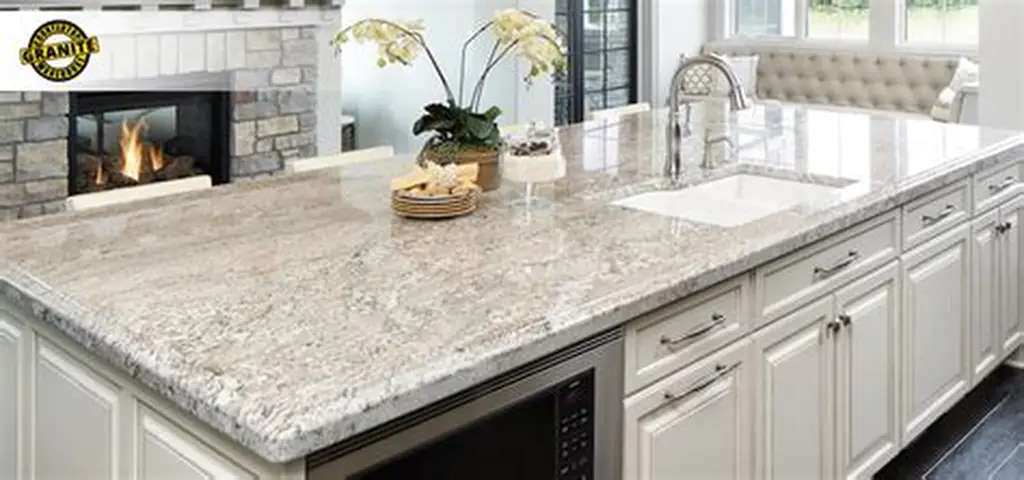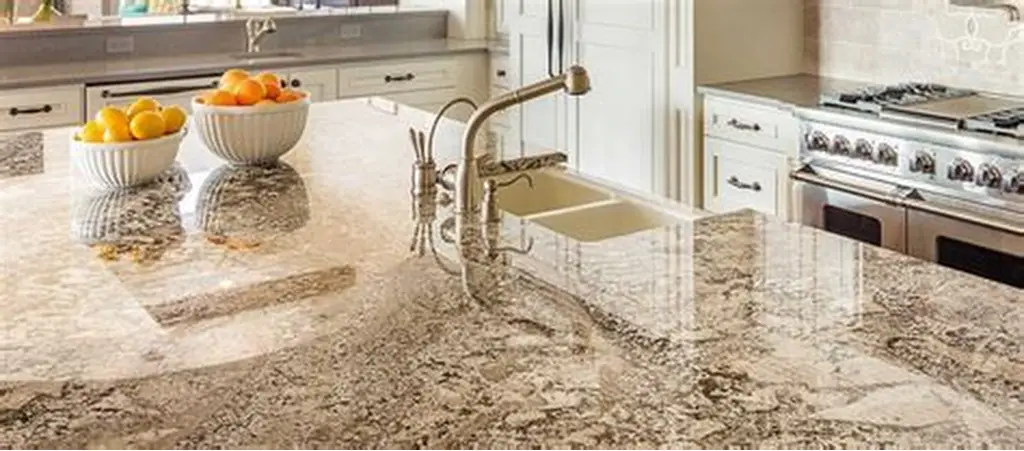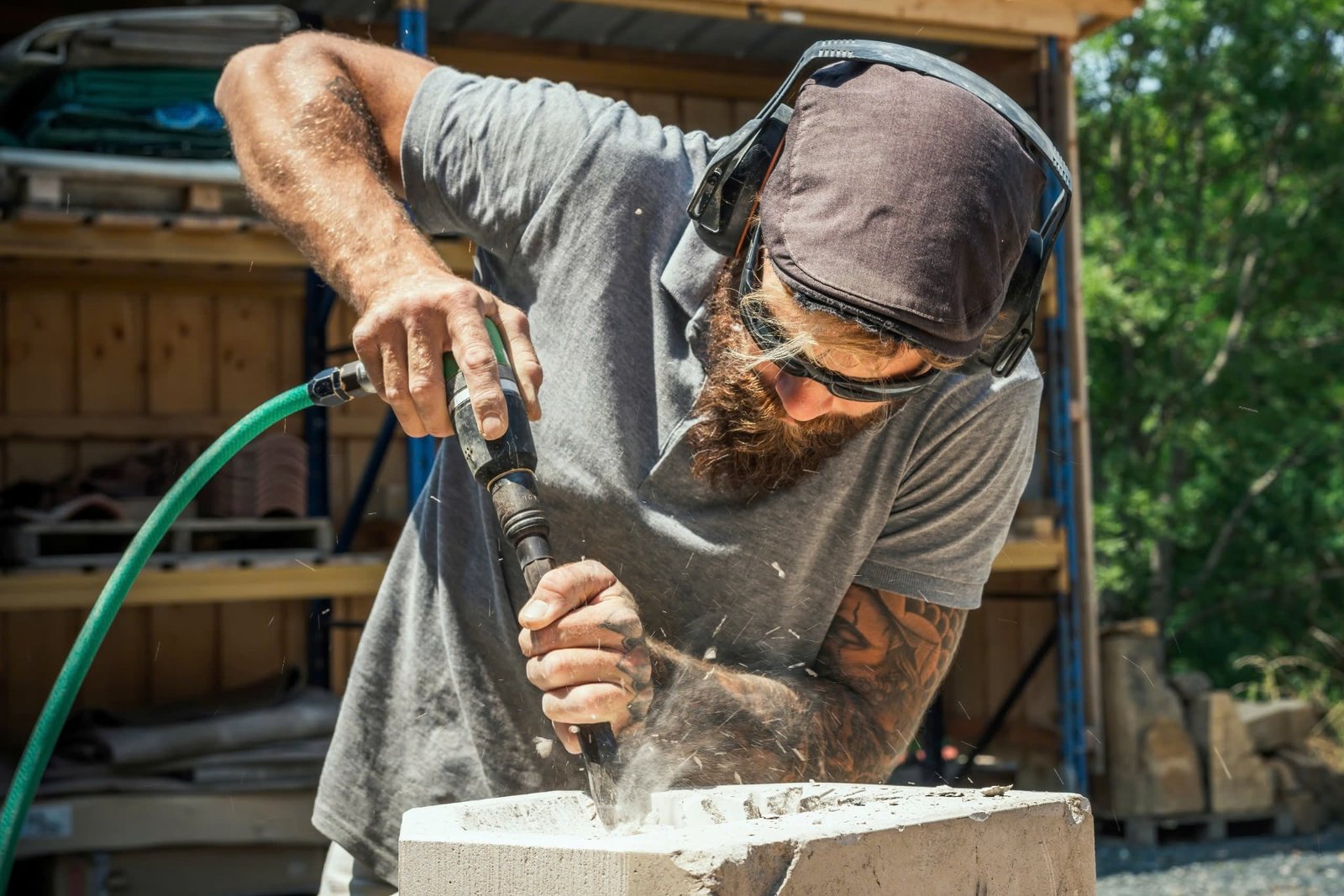
Granite countertops are a luxurious and timeless addition to any home.
Granite countertops are a luxurious and timeless addition to any home. Whether you’ve installed granite kitchen countertops, granite bathroom countertops, or even granite countertops for outdoor kitchens, proper maintenance is crucial to preserve their natural beauty and durability. One of the most common questions homeowners ask is: How often do you have to seal granite countertops?
In this comprehensive guide, we’ll dive into sealing frequency, signs it’s time to reseal, the types of sealers you can use, and tips for extending the life of your countertops. Let’s get started.

Why Sealing Granite Countertops Matters
Granite is a natural stone that is porous by nature. This means it can absorb liquids, oils, and bacteria if left unsealed, resulting in permanent staining or damage over time. Sealing your granite countertop helps create a protective barrier that repels water, oil, and grime.
Whether you have black granite countertops, white granite countertops, or exotic styles like blue pearl granite countertops, all granite types benefit from sealing. Even polished granite countertops, which appear glossy, need occasional resealing—although less often than honed granite countertops, which are more porous.

How Often Should You Seal Granite Countertops?
General Guideline:
- Light-colored granite: Seal every 6 to 12 months.
- Dark-colored granite (e.g., black or brown): Seal every 2 to 3 years.
- Outdoor granite countertops: Seal annually or bi-annually due to exposure to elements.
Granite varies in porosity. Some varieties are dense and less absorbent, while others are more porous. That’s why it’s essential to test your specific stone regularly.
The Water Test: Check If Your Granite Needs Sealing
Perform a simple water test to determine if it’s time to reseal:
- Pour a few drops of water on the granite surface.
- Let it sit for 10-15 minutes.
- Wipe it off and observe.
If the granite darkens, it means water has penetrated the surface, and it’s time to reseal.
💡 Pro Tip: Darker granites like black granite countertops often need sealing less frequently than lighter colors.
Signs Your Granite Countertop Needs Resealing
Here are the telltale signs:
- Water no longer beads up on the surface.
- The countertop absorbs water and darkens.
- Oil stains become hard to remove.
- The surface looks dull and lacks luster.
Factors That Affect Sealing Frequency
1. Color and Finish
- Honed granite countertops need sealing more often due to their matte finish.
- Polished granite countertops are more resistant to moisture.
2. Location and Usage
- Granite kitchen countertops often experience spills and heat, requiring more frequent sealing.
- Granite bathroom countertops may be exposed to water but less staining, allowing for less frequent sealing.
3. Stone Density
Dense stones like black granite countertops may only need resealing every 3 years, while porous white granite countertops may require annual care.
Best Sealers for Granite Countertops
Choosing the right product is key for long-lasting protection. Options include:
- Penetrating sealers: These absorb into the stone and offer long-term protection.
- Topical sealers: Sit on the surface and offer short-term results.
Look for products specifically designed for natural stone countertops and avoid harsh chemicals that can damage granite.
Step-by-Step: How to Seal Granite Countertops
- Clean the surface thoroughly.
- Allow the granite to dry completely.
- Apply the sealer evenly with a soft cloth.
- Let it absorb for 15–20 minutes.
- Wipe off the excess with a clean cloth.
- Allow the countertop to cure for 24 hours before heavy use.
🛠️ Related: Material Handling Equipment
Granite Countertops Maintenance Tips
To reduce how often you need to reseal, follow these tips:
- Clean with pH-neutral stone cleaners.
- Wipe spills immediately.
- Avoid abrasive pads or harsh chemicals.
- Use coasters and trivets for protection.
These best practices also apply across different granite styles including custom granite countertops, granite slabs for countertops, and affordable granite countertops for modern kitchens.
What Happens If You Don’t Seal Granite Countertops?
Neglecting to seal can result in:
- Water and oil stains.
- Bacterial growth in porous surfaces.
- Etching and dullness.
- Expensive restoration or replacement costs.
Granite vs Quartz: Which Is Easier to Maintain?
Unlike granite, quartz countertops are non-porous and do not require sealing. Quartz offers a more maintenance-free option.
🔍 What Are Quartz Countertops?
🤔 Is Quartz Good for Kitchen Countertops?
📚 All About Quartz Countertops
Final Thoughts
Granite countertops are a fantastic investment for any home, but they do require consistent maintenance. Understanding how often to seal your countertops depends on your granite type, finish, usage, and environmental exposure.
With proper care, your granite kitchen countertops, granite bathroom countertops, or even granite countertops with white cabinets can last a lifetime while maintaining their stunning appearance.
To sum up:
- Do the water test annually.
- Seal every 1–3 years depending on the granite.
- Use high-quality sealers and avoid acidic or abrasive cleaners.
- Follow proper maintenance tips to extend the life of your granite surfaces.

